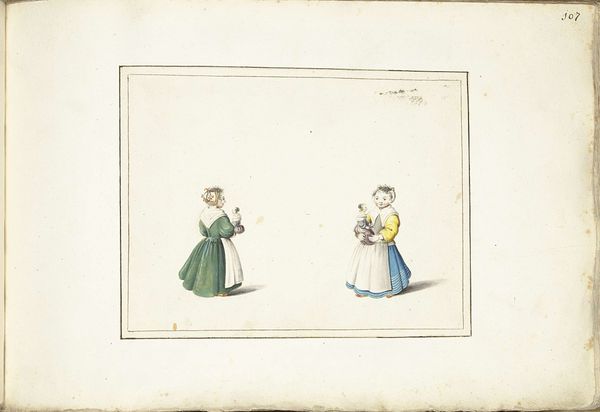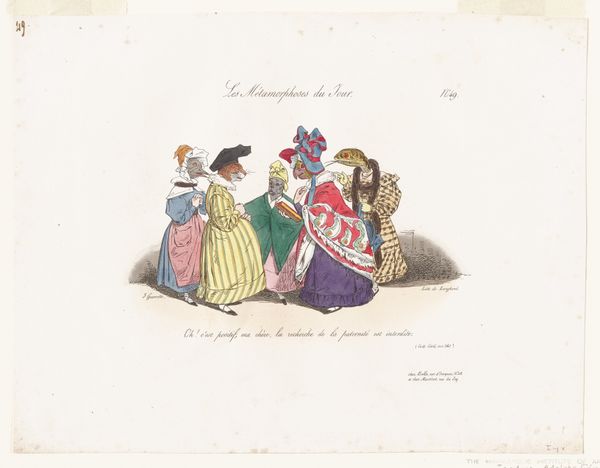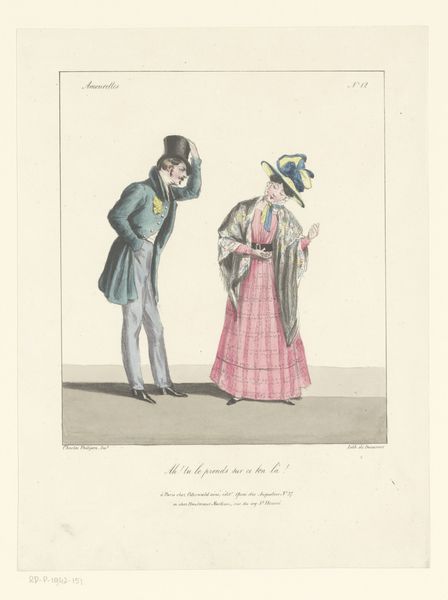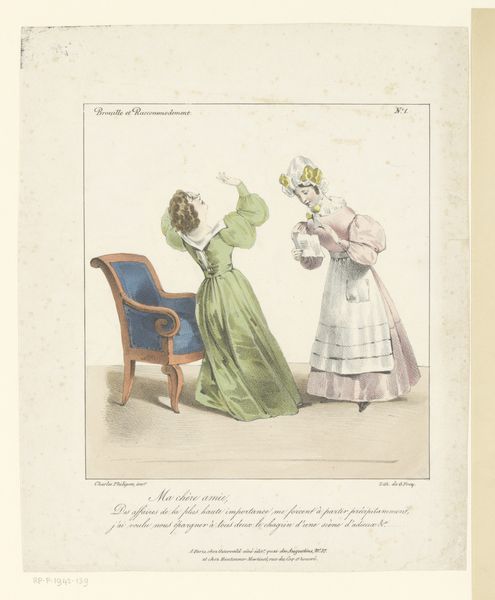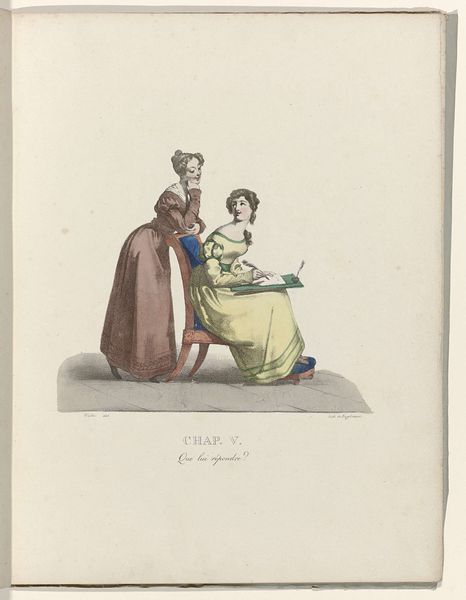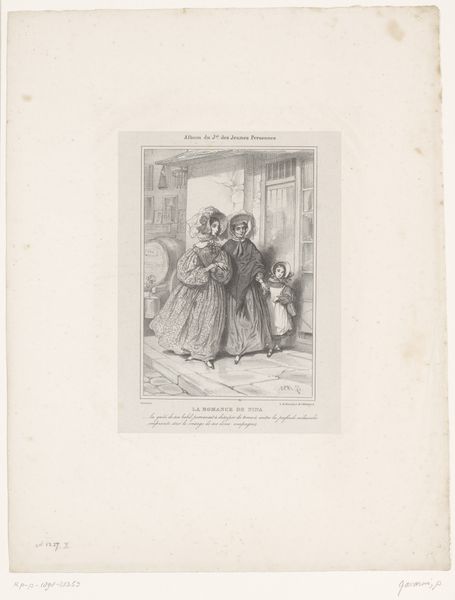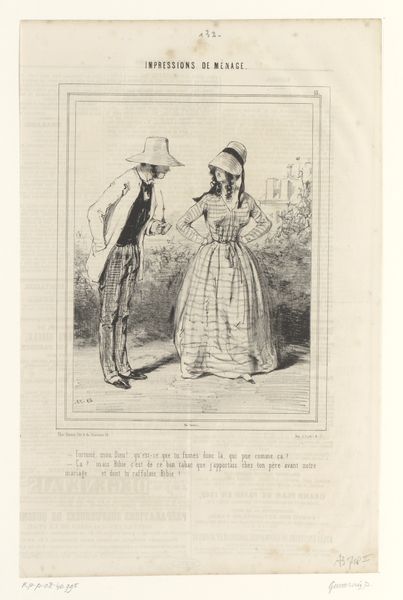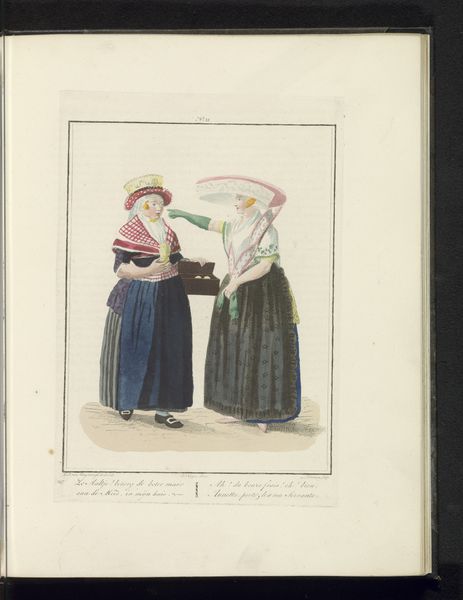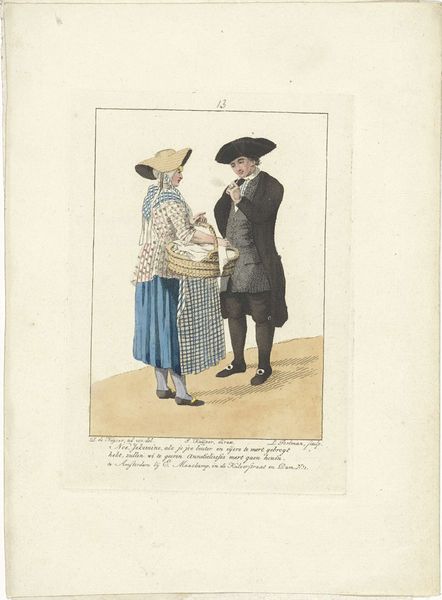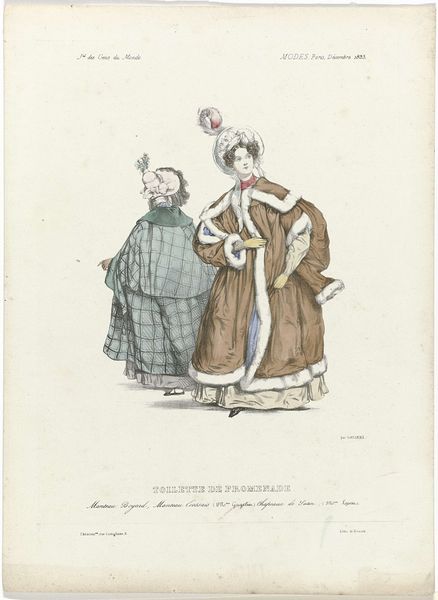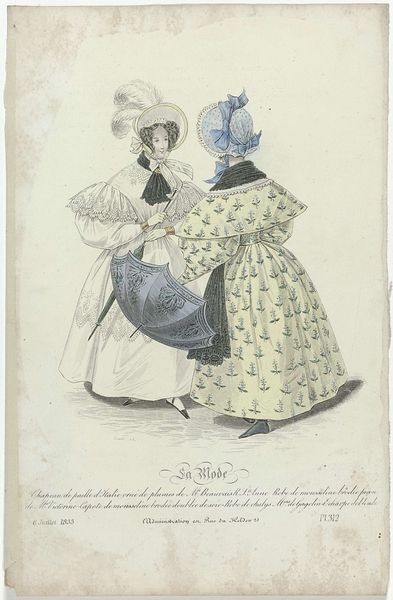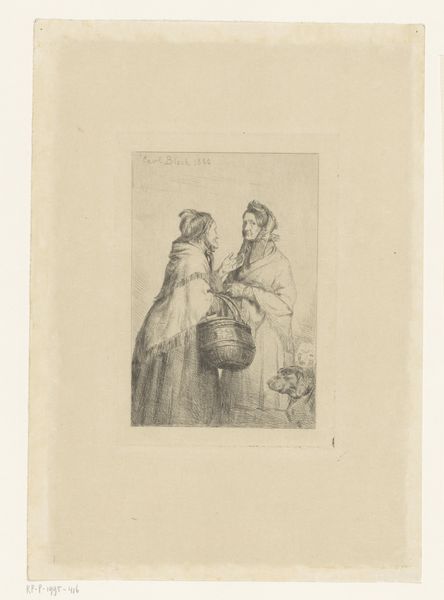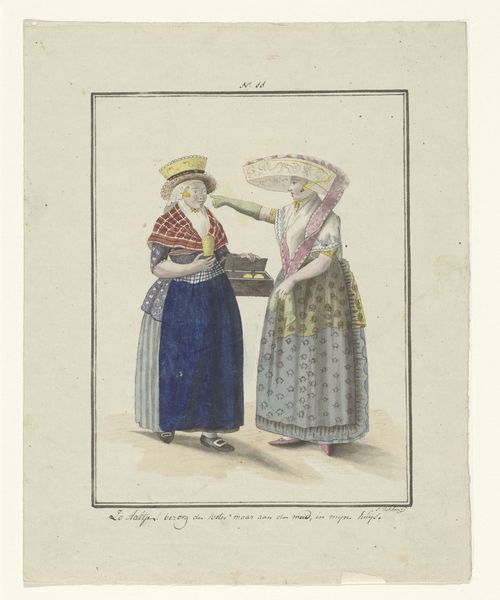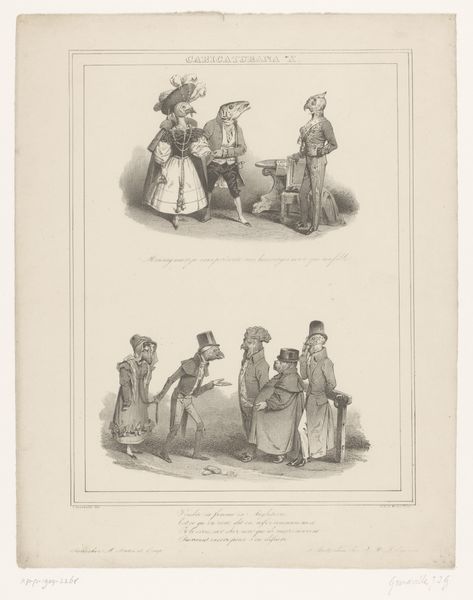
drawing, paper, watercolor, ink
#
portrait
#
drawing
#
landscape
#
figuration
#
paper
#
watercolor
#
historical fashion
#
ink
#
romanticism
#
genre-painting
#
academic-art
#
miniature
Dimensions: height 178 mm, width 132 mm
Copyright: Rijks Museum: Open Domain
Editor: This watercolor and ink drawing, "Twee meisjes met een pop" created in 1824, shows two young girls and a doll, evoking a sense of gentle domesticity. How would you interpret this piece, especially considering the materials and time period? Curator: I see this piece as deeply embedded in its socio-economic context. Look at the detail given to the girls’ clothing. This level of precision indicates that it served a very specific cultural function and catered to a particular level of material accessibility. Think about the labor involved in producing these clothes, the textiles, the dyes. These materials wouldn't have been universally accessible. Who then, do you think this artwork was created for? Editor: Presumably, a relatively affluent audience that appreciated this type of domestic scene, a scene showcasing this particular type of textile? Curator: Exactly. Moreover, consider the “doll.” It's not just a plaything. It is made using various materials assembled via specialized processes and, itself, a miniature representation of a kind of consumer culture and aspirations around production. And it echoes in miniature the textiles of the girls' garments. How do you think this resonates? Editor: I see your point. It brings out this connection between the production of luxury goods, class, and the everyday life, of even these young girls, through their material culture. It seems like this isn’t just a quaint genre scene then, but an early depiction of the development of capitalism and the means of making art about labor, access, and the accoutrements that suggest those systems are already active. Curator: Precisely. And those elements work together. Do you feel that it might shift our understanding of art from the period? Editor: Yes, it is certainly giving me new ways to consider how the materials used in art themselves communicate so much about social history. Curator: I’m so glad this piece has opened that way of seeing for you, too.
Comments
No comments
Be the first to comment and join the conversation on the ultimate creative platform.
